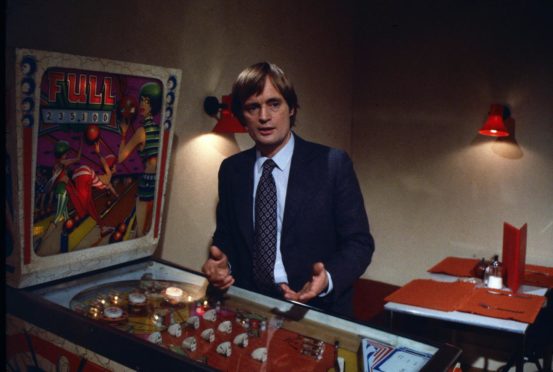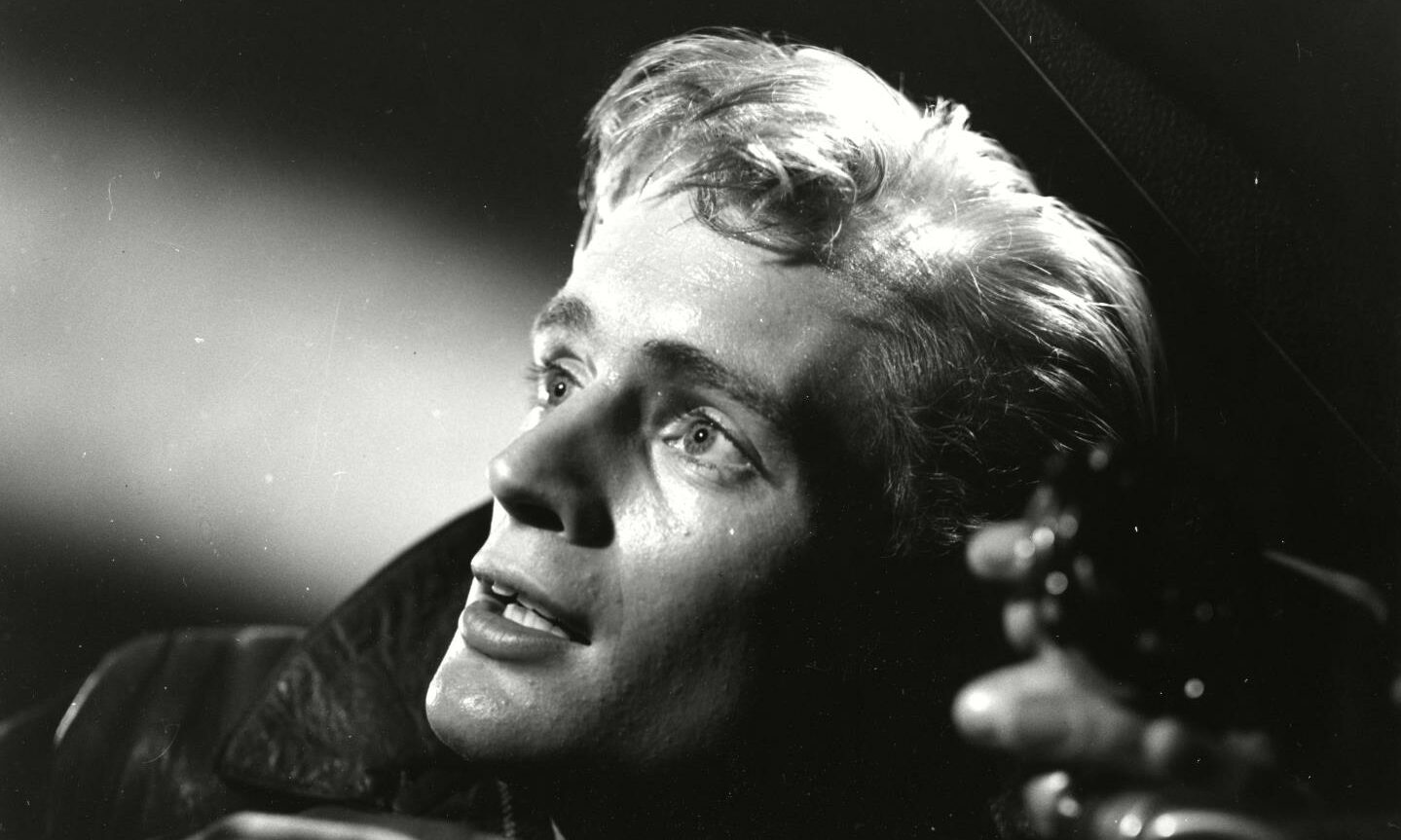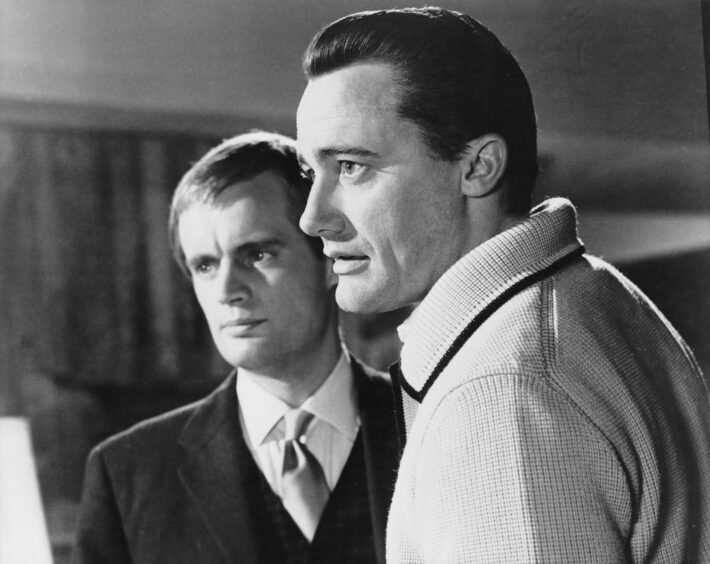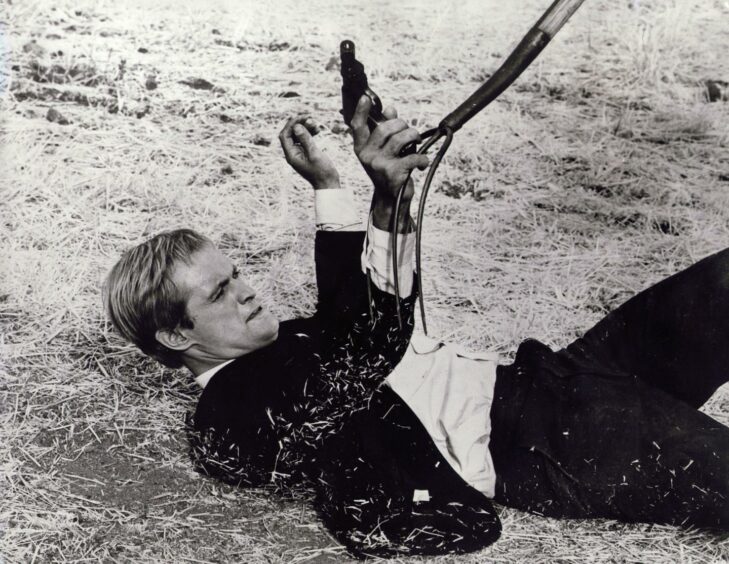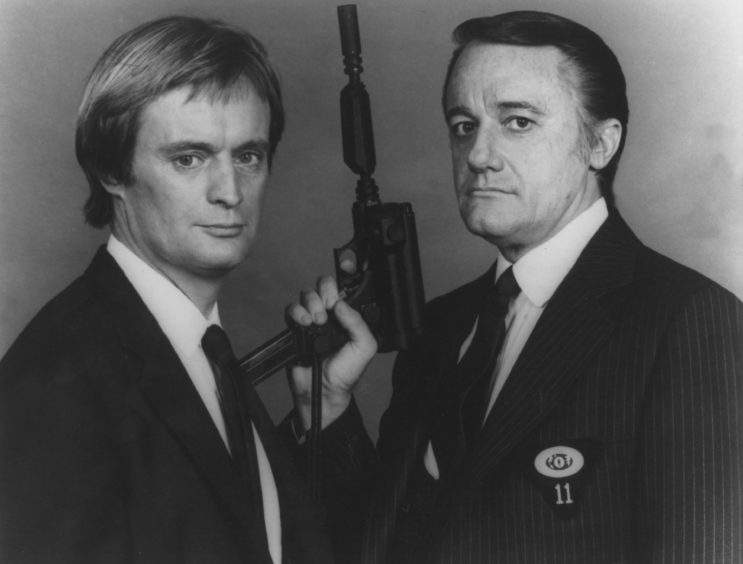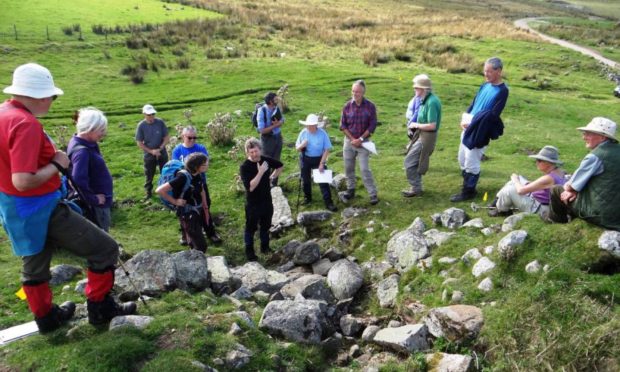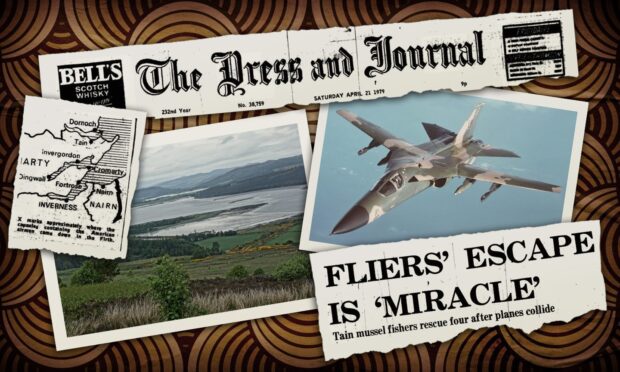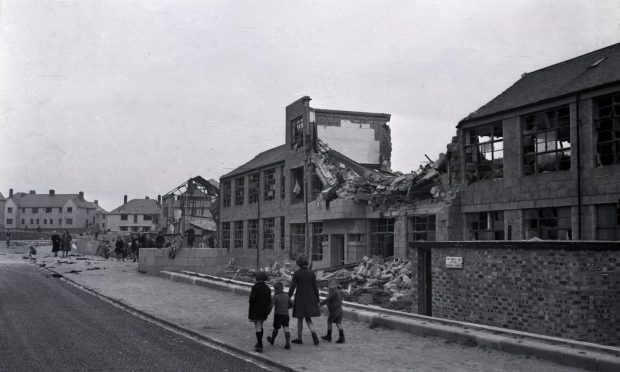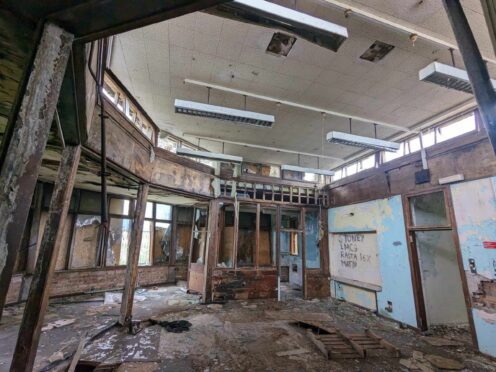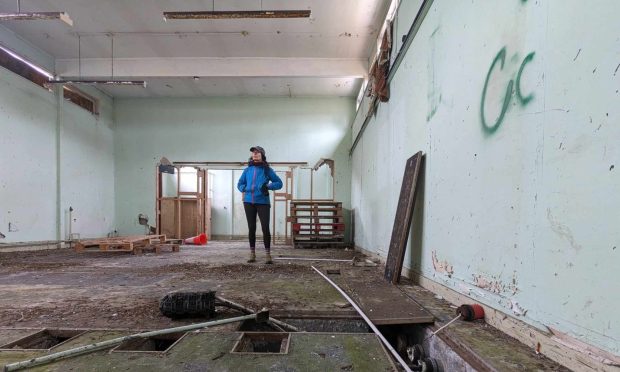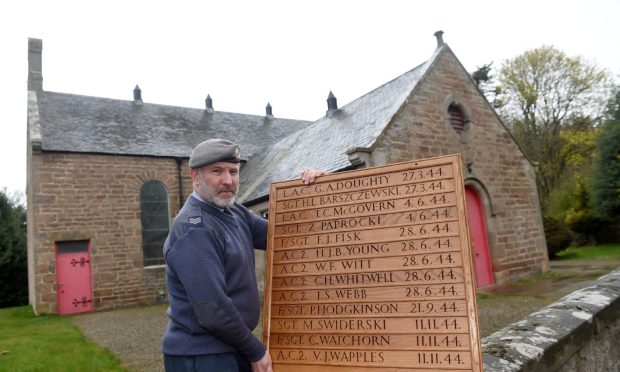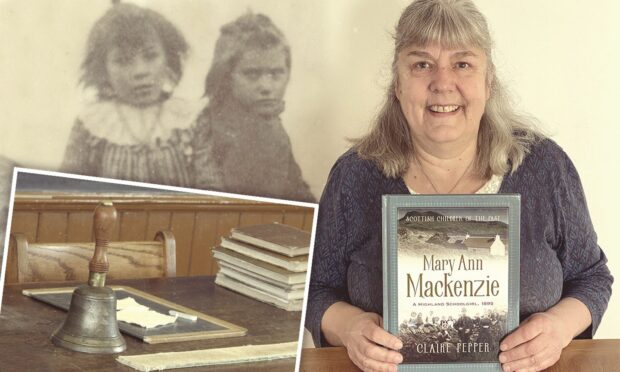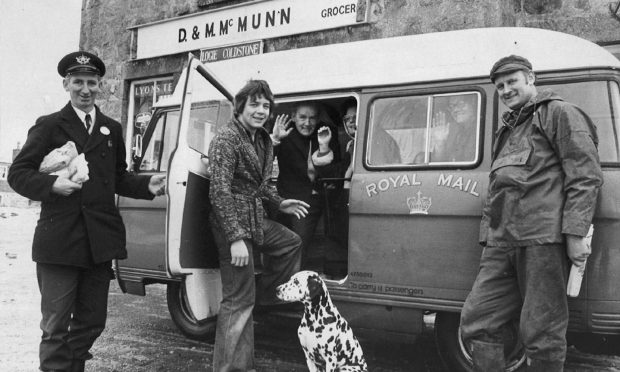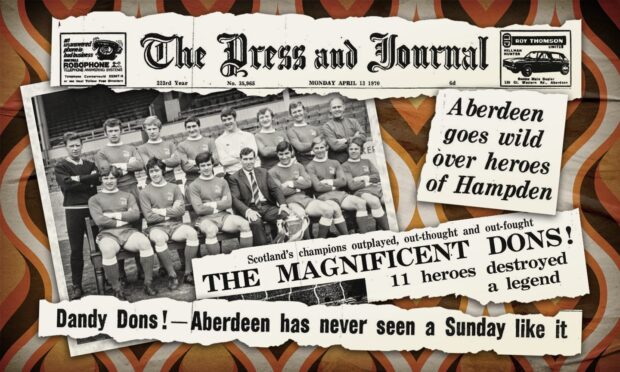NCIS star David McCallum cheated death three times before going on to worldwide stardom.
McCallum, who has family links to Macduff, almost cashed in his chips during the Second World War and still remembers each and every escape.
He talked about the three times he came close to death in a forgotten interview from 1966 at the height of his fame in the spy series The Man From U.N.C.L.E..
McCallum was born in 1933, in Kelvinside, Glasgow, where his father was leader of the Scottish Orchestra and his mum was a cellist.
In 1936, the family moved down to Hampstead Garden Suburb until war began in 1939.
Many, many times he had heard the air-raid siren, the screech of the bombs and the ear-shattering explosions but they had always been a safe distance away.
The street shook
Yet a strange noise woke him one night in 1940.
It sounded as if it were coming from the next room.
McCallum recalled: “I was very young – but I remember as if it were yesterday.
“I jumped out of my bed and ran into my parents’ room.
“And just as the explosion came, I was in my mother’s bed, my arms around her neck as tightly as I could put them.
“Sometimes now I wonder why I didn’t strangle her.
“The room shook, the house shook, the street shook.
“Then it was deadly quiet.
“The next morning when everyone went out to survey the street, it almost was not there.
“Our house was still standing, but it was about the only one.”
It wasn’t too long after the narrow escape that McCallum moved back to Scotland to live with his mum and he went to school on the banks of Loch Lomond.
The family didn’t return to London until 1944 and McCallum was allowed to go off to play wherever he could find a playground or park.
“As I played one day a plane flew over the park,” he said.
“But I paid no attention to it, there had been no raid siren, no warning at all.
“Suddenly a man came running toward me yelling, ‘Get down, lie down, it’s a buzz bomb’.
“It exploded less than 20 feet from where we were.
“Glass, dirt and bricks went flying all around.
“Some of the glass hit me.
“When the man saw that I had been hurt, that my hands were bleeding, he tried to help me – but I ran home – making it in record time.
“When the blood was washed off, the wound was not serious – it healed in no time, but the awful memory is still there.”
There was nothing
McCallum learned there was no sense in running when you heard a bomb because there was no way of predicting where it would fall.
He was extra-positive about it the day he had his third escape from death.
He said: “Some friends and I were walking home from school one day, and taking our time about it.
“We had all heard about the V2 rockets the Nazis had been sending, but we had never actually seen one.
“Suddenly, there was one coming at us.
“I had long since learned that there was nothing to do but stand exactly where you were because the blasted things were unpredictable.
“If you ran, you had just as much of a chance to run into it as you did if you stayed put.
“So I stayed put.
“I just stood there in the middle of the street hoping and praying that it wouldn’t hit me, that it would veer off and hit some open area or something.
“It didn’t hit me, of course, but it didn’t hit an open area, either.
“It landed smack in the middle of a street – or what would have been a street had it not been for the V2.
“It wiped out the whole block – one rocket.
“One moment there had been houses and trees and people and life.
“The next, there was nothing – nothing but bricks and rubble and holes, smoke, black fire and death.
“It was one of the most horrible things I’ve ever seen in my life.
“I shall never forget it.
“It’s been a bit over 20 years and I have not forgotten it.
“There are many other people who have had much more horrible war experiences than I have.
“It must be a terrible thing to live with – just terrible.
“I hope my children – all children everywhere – never have to go through the terrifying horrors of another war.”
McCallum became hooked on the theatre and got his Equity card at 12 and went to the Royal Academy of Dramatic Art after a spell at a boys’ school in Hampstead.
The 1950s were spent hopping from one stage management post to another, with repertory companies in Leatherhead, Pitlochry and Chesterfield.
In 1961, after a year at Glyndebourne, a spell at the Oxford Playhouse and other work, McCallum went to America to play Judas Iscariot in The Greatest Story Ever Told.
The Man from U.N.C.L.E.
McCallum was cast in the role of Illya Kuryakin in the television series The Man from U.N.C.L.E. in 1964 for which he received two Emmy Award nominations.
The list of stars with whom David McCallum has worked with during his career includes Hollywood screen icons such as John Wayne and Steve McQueen.
McCallum never quite repeated the popular success he gained as Kuryakin and his additional television credits include Colditz, Sapphire and Steel, and The Invisible Man.
His feature film credits include The Great Escape, Mosquito Squadron, Billy Budd, Freud and A Night To Remember.
McCallum and Robert Vaughn would go on to reprise their iconic roles of Kuryakin and Solo in a 1983 TV film, Return Of The Man From U.N.C.L.E..
In 1985 he enjoyed a family holiday in the Bridge of Allan when the McCallum clan attended his uncle John Abercrombie’s 50th wedding anniversary.
On that trip back in 1985, they also drove up to Aberdeen and around through Macduff, where his Aunt Kitty lived at the time.
They went to all the places where Macbeth was and then came down by all the lochs and round the Western Isles and back down to Glasgow.
In 1986 McCallum reunited with Robert Vaughn again, in an episode of The A-Team entitled The Say U.N.C.L.E. Affair.
The Man from U.N.C.L.E. remains one of the highlights of his life.
At the height of the programme’s success, his fame was astronomical.
McCallum joined NCIS in 2003 and discovered a new fan base in the United States that is every bit as devoted as his army of acolytes from the 1960s.
McCallum planned a ‘roots trip’ for his American children and grandchildren to go to Scotland following success in NCIS but his Aunt Kitty died after booking the flights.
He remains one of the most popular actors in NCIS which has returned for season 19 and McCallum has been on a limited schedule since 2017.
In March 2019 his character, Ducky, retired from his position as NCIS’s Chief Medical Examiner with his former assistant, Dr James Palmer, succeeding him.
Following his retirement, he assumed the role of NCIS Historian.
More like this:
Ducky, Dr Dre and Snoop Dogg: NCIS hero David McCallum was a gangsta rap star
How Dundee actress sang her way into the spotlight in The Wicker Man
When there was No Time to Die for James Bond author Ian Fleming’s Dundee grandfather
